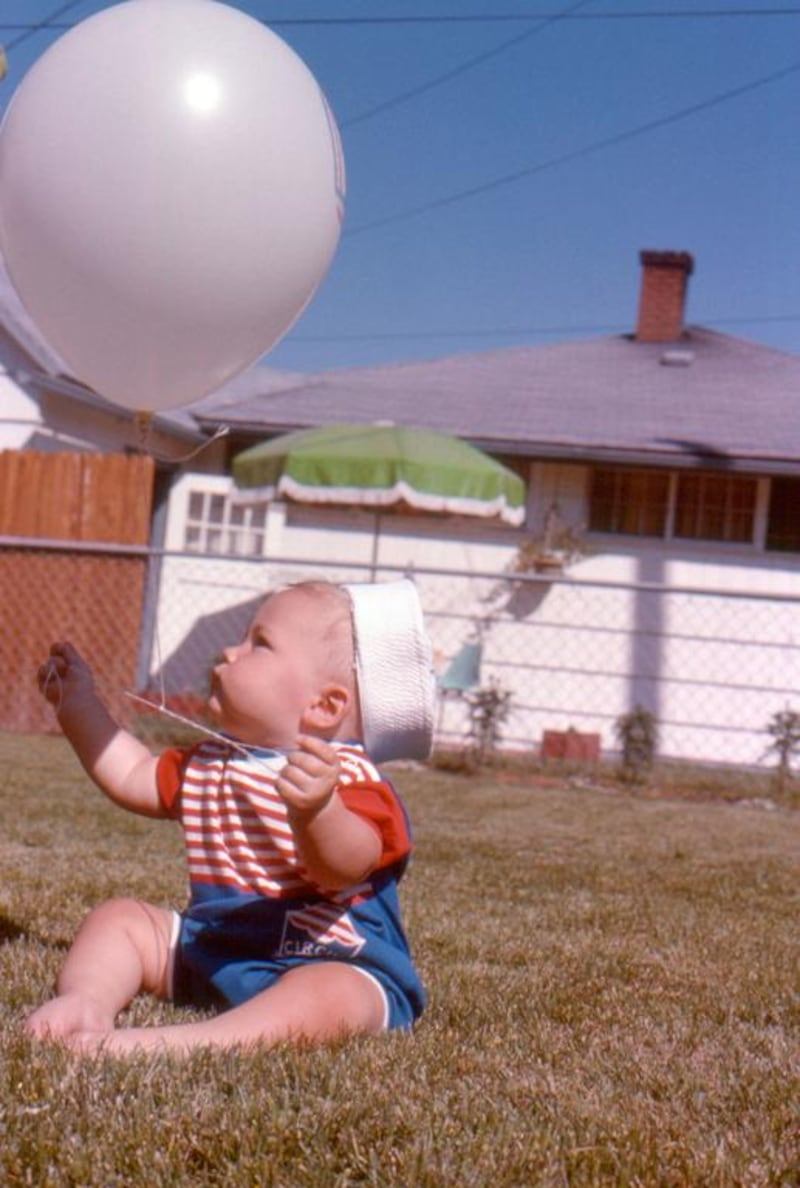Gary Shteyngart’s fourth book is a memoir that offers a candid portrait of the artist as a young man while shining an equally revealing light on how much biographical content has been blended into his three preceding novels.
The main theme in his novels is the immigrant experience – settling down and fitting in. Little Failure gives the reader the real thing, tracking Shteyngart and his parents as they trade one superpower for another – uprooting themselves from Leningrad in 1979, when Shteyngart was seven, and acclimatising as immigrants in New York.
We learn that Shteyngart answers to Little One, Little Son and Little Igor in the family home in Little Neck, but soon his mother fuses her original Russian and newly acquired English to come up with a new, more apposite nickname: Failurchka, or Little Failure.
Shteyngart’s memoir shows the author living up to his parents’ expectations, from diffident, asthma-plagued youth to awkward, panic-attack prone teenager, before blossoming into a drunk, stoned, spoilt, angst-ridden young man.
The Shteyngart that emerges at the end is one who has triumphantly overcome his failures, learnt from them, and, best of all, incorporated them into his wonderfully pungent, witty and satirical fiction.
America for the Shteyngarts is a chance to start anew and be free of the “polyester captivity” of the Soviet Union. Fresh-off-the-boat naivety is overlaid with after-the-event mocking. Every chapter comes with a comical photo of a younger Shteyngart – cute lost child in a sailor suit gradually evolving into geekier, hairier, more garishly clad incarnations.
Alienation hits early. Shteyngart sits in the school cafeteria in his adoptive land and views his surroundings as a microcosm of America: “A complex, media-driven, gadget-happy society, whose images and language are the lingua franca of the world and whose flowery odours and easy smiles are completely beyond me.”
Making friends is a struggle. Shucking off his thick Russian accent is a challenge. Puberty and sexuality are hilariously chronicled and carefully engineered to elicit, first, schadenfreude from the reader, then sympathy.
Good writers’ memoirs are full of sown seeds of authorial yearnings and creativity that will later bloom. Shteyngart knows this, has felt the pangs and responded to the urges, and so sprinkles in the hints that point to the future.
At five, he becomes enamoured of words; at 10, in a bid to combat his loneliness and inspired by Isaac Asimov and Star Trek, he pens sci-fi stories. His writing begins in earnest when he turns 20, a period in his life that is “post-Leningrad, post-Hebrew school, post-childhood, post-God”.
This last section of the book sees Shteyngart at his most self-effacing. A breakdown (“the lowest moment of my life”) leads to regular sessions with a shrink (“a lunch date with reality”) that results in arrogance ditched for humility and a caustic worldview reserved for the printed page.
A reborn Shteyngart gets the publishing deal he has craved and suddenly Little Failure explodes into big success.
This is a memoir about aspiration and achievement. Failure dominates – in love, in writing, in tapping into the American dream – but each time Shteyngart eschews maudlin self-pity for uproarious self-criticism.
As expected, he is lavish with his trademark humour, ensuring it coats every interlude. Between smirks, we marvel at his range. We get hyperbole (the Yalta Conference: “Stalin, Churchill and FDR signed some kind of real estate deal here”) and wry wordplay (“My mother looks half Jewish, which, given the place and time, is too Jewish by half”), both of which suggest Shteyngart is the rightful heir to Joseph Heller.
Best of all are his sideswipes at America: he takes the TV Guide to be "America's version of literature"; cereal tastes "grainy, easy and light, with a hint of false fruitiness. It tastes the way America feels".
Here and there a change of timbre balances the self-deprecation and the lunacy. Shteyngart’s account of first love is touchingly conveyed and far removed from the bumbling and groping catalogued elsewhere, and the horror and privation his relatives endured during the war is relayed as poignant family drama.
In the last chapter, Shteyngart swaps those Speak, Memory-style recollections for observations.
We follow him on a trip – part vodka-soaked travelogue, part paean to Soviet boyhood – back to his hometown in 2011.
It is no longer Leningrad (nor was it ever St Leninsburg, the city in his 2006 novel Absurdistan) and it is no longer home, and so there is an intoxicating mix of nostalgia and discovery.
However, it is Shteyngart's rocky road to self-discovery that wins the day and makes Little Failure such a gloriously compelling read.
Malcolm Forbes is a freelance essayist and reviewer.










